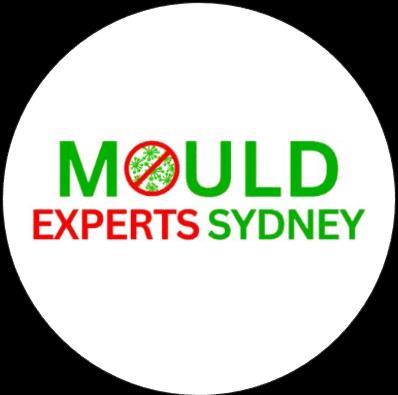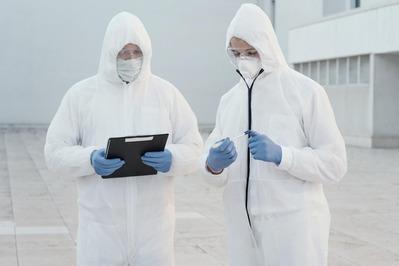

What
Are the Key Benefits of Mould Inspection in Sydney?
Introduction to Mould Inspection in Sydney
Mould growth is a persistent problem in many households and commercial spaces, particularly in regions with high humidity, like Sydney. Whether you're a homeowner, tenant, or business owner, one of the first steps to protecting your property and health is identifying the presence of mould through a professional mould inspection. Mould Inspection in Sydney is a critical service that helps detect hidden mould, assess potential health risks, and prevent further property damage. In this detailed guide, we’ll explore the key benefits of Mould Inspection in Sydney, how the process works, and why it's essential for the well-being of your property and its occupants.
The Growing Concern of Mould in Sydney Properties
Sydney, with its subtropical climate, can often experience high humidity levels, especially during the rainy season. These conditions are perfect for mould growth. Mould thrives in damp, poorly ventilated areas like bathrooms, kitchens, basements, and even attics. If not detected and treated early, mould can spread rapidly, leading to significant damage to building materials and posing serious health risks.
Many property owners may not realize that mould can grow in hidden areas such as behind walls, under carpets, or within HVAC systems. That’s why regular Mould Inspection in Sydney is crucial for preventing these hidden growths from becoming a bigger problem.
Benefits of Mould Inspection in Sydney
1. Early Detection of Mould Problems
One of the main advantages of Mould Inspection in Sydney is early detection. Mould is often not visible to the naked eye, especially if it’s hidden in hard-to-reach places. A professional

mould inspection service in Sydney can help detect the early signs of mould growth before it spreads throughout the property. Catching mould early makes it easier to remediate and can prevent severe damage to walls, ceilings, and furniture.
2. Accurate Identification of Mould Type
There are many types of mould, some of which can be harmful to both health and property. An experienced inspector in Sydney will conduct thorough testing to identify the specific types of mould in your home or office. By understanding the type of mould present, it becomes easier to determine the necessary steps for removal and remediation. This also helps in preventing recurrence by addressing the underlying causes.
3. Improved Indoor Air Quality
Mould can release spores into the air, which can negatively affect the indoor air quality. This is especially concerning for individuals with respiratory conditions such as asthma, allergies, or even chronic sinus issues. By scheduling a Mould Inspection in Sydney, you can identify the sources of airborne mould spores and take steps to remove them, leading to improved indoor air quality and better health for the occupants of the property.
4. Preventing Structural Damage to Property
If left untreated, mould can damage the structure of your property. Mould weakens walls, ceilings, floors, and wooden structures, causing rot and compromising the overall integrity of the building. Mould Inspection in Sydney allows for early detection of moisture issues, which could lead to structural damage. Once mould is removed, repairing and restoring the structure becomes more manageable, saving you significant costs in the long run.
5. Protecting Your Health
Perhaps the most important benefit of Mould Inspection in Sydney is protecting your health. Prolonged mould exposure can lead to various health issues, including respiratory problems, skin irritations, headaches, and even more severe conditions like fungal infections. A professional mould inspection service can identify the potential health hazards of mould growth, ensuring the safety of you and your family or employees.
6. Identifying Hidden Moisture Issues
Mould often indicates a deeper moisture problem, whether from leaks, poor ventilation, or excess humidity. During a Mould Inspection in Sydney, experts will not only look for visible signs of mould but also identify the root causes of moisture accumulation. Addressing these issues at the source ensures that mould does not return after removal, providing long-term protection for your property.
7. Preventing Legal and Financial Issues
For property owners, failing to address mould issues can result in legal and financial consequences. If mould-related health issues affect tenants or employees, you could be held responsible for their medical expenses or potential lawsuits. Additionally, mould can decrease the resale value of your property. A professional Mould Inspection in Sydney helps mitigate these risks by identifying and resolving mould-related problems before they escalate.
8. Peace of Mind for Homeowners and Business Owners
Mould Inspection in Sydney offers peace of mind, knowing that your property is safe and free from harmful mould infestations. Whether you’re a homeowner or business owner, this proactive measure ensures that you’re taking the necessary steps to maintain a healthy, safe environment. Regular inspections also mean that you’re less likely to experience unexpected mould problems that could disrupt your daily life or operations.
How Mould Inspection in Sydney Works
A professional mould inspection involves several key steps to ensure thorough analysis and accurate findings. Here’s what you can expect from a typical mould inspection service in Sydney:
1. Initial Consultation and Assessment
The process starts with a consultation where the inspector discusses your concerns, property history, and any visible signs of mould or water damage. They’ll evaluate the property’s layout, construction materials, and areas with potential moisture problems.
2. Visual Inspection
The inspector will conduct a detailed visual inspection, focusing on common mould growth areas such as bathrooms, kitchens, basements, and attics. They will check for visible mould growth, moisture issues, and water damage that could be contributing factors.

3. Moisture Detection
In addition to visual inspection, advanced tools like moisture meters, infrared cameras, and hygrometers may be used to detect hidden moisture sources in walls, ceilings, floors, and even under carpets. This helps locate mould growth in places that are not immediately visible.
4. Mould Testing
If mould is detected, the inspector may take samples for laboratory analysis to identify the type and concentration of mould present. This step is important for understanding the potential health risks and determining the most effective remediation methods.
5. Detailed Report and Recommendations
Once the inspection is complete, the inspector will provide a detailed report outlining the findings, including mould locations, types, and moisture sources. They will also provide recommendations for remediation and steps to prevent future mould growth.
Preventing Mould Recurrence After Inspection
While Mould Inspection in Sydney is an essential step in identifying and addressing mould problems, it’s equally important to take preventive measures to stop mould from returning. Some of these measures include:
Improving ventilation in areas prone to moisture, such as bathrooms and kitchens.
Fixing leaks in roofs, windows, or plumbing to prevent water from entering the property.
Using dehumidifiers in damp areas to reduce humidity levels.
Regularly cleaning and inspecting your property to catch mould early.
Conclusion
In summary, the key benefits of Mould Inspection in Sydney are undeniable. From early detection and improved indoor air quality to protecting your property from structural damage, a professional mould inspection can save you time, money, and health-related issues in the long run. Whether you're a homeowner, tenant, or business owner, taking the time to schedule a mould inspection in Sydney ensures a safe, healthy environment for everyone involved. Remember, early intervention is key to preventing costly damage and protecting your health from mould-related risks.
Contact Us
Read More:- https://www.mouldsydney.com.au/inspection/
Phone No:- 02 8528 7484
Mail- info@mouldsydney.com.au
